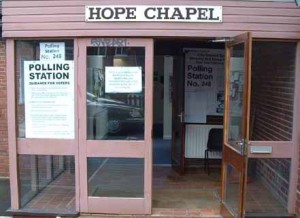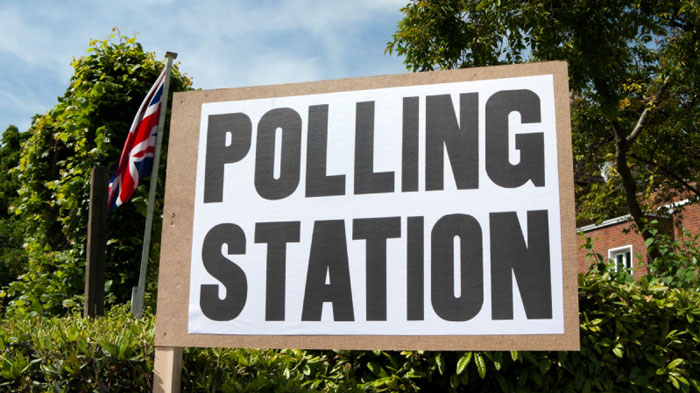General Election 2015: Didn’t see that result coming did you? Steve Beauchampé did… well, sort of, a little bit.
Like many people, I’m not averse to making predications, although usually only to friends and family. Amongst my more forgettable was a claim in 2012 that: “E-cigarettes are a fad that will last about a year”. I do get some right though, and since autumn 2010 I’ve repeatedly predicted that Ed Miliband would not be Prime Minister.
I’ve never wavered from that view, not even during the last few weeks when his stock appeared to be rising slightly. And, whilst I hadn’t been predicting a Conservative majority, I did expect the Tories to be the largest party both in terms of seats and vote share, and thus have the ability and legitimacy to form the next government.

Furthermore the Conservatives, having finished second in a large majority of Liberal Democrat seats in 2010, were always the most likely beneficiaries of the expected Lib Dem vote collapse (the public proved as unforgiving of the Liberal Democrats for their broken promises over tuition fees and joining a coalition with the Conservatives as they were to Labour for overseeing the record deficit). By comparison, it was clear that Labour would suffer heavy losses to the Scottish Nationalists – in a geographical area where the Conservatives themselves, quite literally, had almost nothing to lose.
A hung parliament still seemed likely though, possibly allowing Labour to try to form a government by assembling a left-leaning alliance. But the Conservatives stymied this at the last, using a card deployed so effectively by supporters of Better Together during last year’s Scottish independence referendum campaign – fear of the SNP and their desire to break up the Union. Cleverly knitting together the public’s two main worries, Cameron’s claim that: “One wants to bankrupt Britain, the other wants to break up Britain” might just have been the most effective line spoken during the entire campaign, whilst their poster showing Ed Miliband in Alex Salmond’s pocket was crude but effective.
Labour’s incessant lambasting of the SNP merely reinforced this narrative and with the minor gains and losses between Labour and the Conservatives largely cancelling each other out, and with the First Past The Post electoral system taking care of any threat from smaller parties – such as the United Kingdom Independence Party and the Greens – the Conservatives were all but assured of retaining power.
Ah… First Past The Post, surely the most effective lock for perpetuating the Labour/Conservative hegemony anyone could devise (suggestions that we were now living in an era of genuine multi-party politics always felt rather over-exaggerated). A prime example: At the 2010 General Election, if the percentage of votes cast had been translated into seats won, the Conservatives would have had 234 (but actually had 307), Labour 188 (258), and the Liberal Democrats 149 (57). Meaning that both the last parliament, and quite possibly Thursday’s results, would have been markedly different.
The travesty of FPTP was even more evident this time; UKIP polled almost 3.9m votes (12.6%) and the Green Party over 1.1m (3.8%), but each won just a single seat. Even the Lib Dems (2.4m votes and 7.9%) remain under-represented with just eight seats, whilst, as usual, Labour, the Conservatives and (probably for the first time) the SNP are significantly overrepresented. Again, Scotland is a good comparator, and where so much about their democracy is vibrant (average turn out on Thursday was over 5% higher than in England, whilst Scottish Parliamentary elections employ the STV voting system), in the rest of the UK it is often moribund.
Things are only likely to worsen during the next five years, as implementation of the hubristic English Votes for English Laws mantra partially disenfranchises Scottish MPs, whilst there seems little prospect of either an elected Second Chamber (House of Lords membership has already been substantially increased by David Cameron since 2010) or the devolution of powers to English regions (where they happen at all) involving democratically accountable structures. When we can’t even offer every MP a seat and table in the Commons chamber and adequate office space in which to carry out their duties what hope is there for more fundamental reform?
Despite all indications that it would be a close election, only around 66% of those registered to vote actually did so, whilst millions more people aren’t even on the electoral register (Individual Voter Registration saw over 900,000 drop off in the year to December 2014 and far more could join them at the end of 2015). The Conservatives attained absolute power on 36.1% of the vote and despite having few, if any, elected representatives in many of the largest conurbations. Such unjustified concentrations of power are also to be found under Labour rule; for instance the party controls all 96 seats on Manchester city council.
Yet instead of addressing these seismic failings in our democratic system, Britain is likely to spend much of the next five years becoming more isolationist. It is all very depressing.
